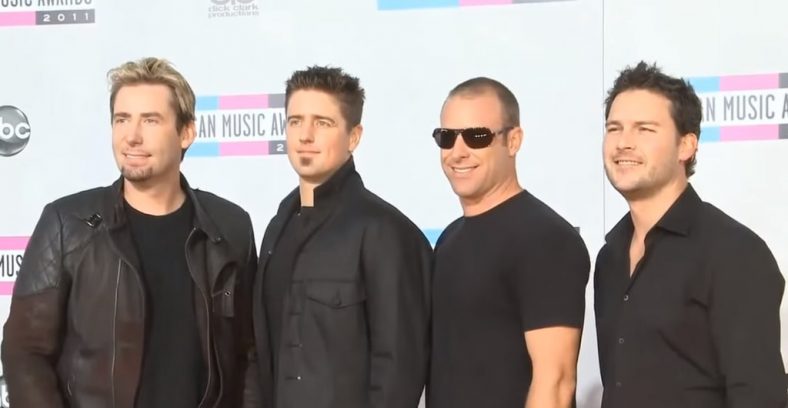Why Are Nickelback Hated So Much?

Many people disliked Nickelback as they felt the band were way too commercial and “sold out” by playing generic rock music. People may also have disliked Nickelback simply due to their songs being widely overplayed on commercial radio stations.
Nickelback tracks, back in the early 2000s, were a must in any playlist, and often caused issues among party-goers. It seemed you either had to love or hate Nickelback. No alternative option. It became almost fashionable to hate on Nickelback as a band. Not necessarily because of their music, but because of what they feel they represented.
On the contrary to the above opinions, Nickleback had (and still have) a lot of fans, each of the band members are good musicians, and they put on a good rock show. Therefore, let’s approach this with an open mind!
The level of controversy raised by the Canadian rock band throughout the early 2000s has possibly no precedents in the history of rock’n’roll!
Contents
A little history

A post-grunge, pop-rock act, originally formed in Alberta in 1995 as a cover band, Nickelback managed to achieve the status of most commercially successful Canadian rock group ever existed.
The Kroeger brothers (Chad, the lead singer, and Mike, the bassist), with guitarist Ryan Peake, and drummer Daniel Adair sold more than 50 million albums throughout their long career.
Their lucky 2001 track How You Remind Me became the most played song on the U.S. radio in the first 2000s decade. They achieved incredible success, hardly paired by any other post-grunge rock act.
But success has its downfalls.
Since the release of Silver Slide Up, unluckily published on September 11th, 2001, the band became the most hated rock act of the decade. Both critics and music fans started opposing their music or blatantly mocking them.
The power ballad How You Remind Me became the first element in this controversy. A classic song about breakups and love affairs that have gone bad, the single was played on every radio station, music TV channel, even some ads.
According to Nielsen Soundscan, it was played more than one million times on American radio only.
It truly was ubiquitous, but was it a good song?
‘How you remind me of someday’
Nickelback is the perfect example of what can happen to independent acts who reach a somewhat sudden and unexpected major success: they might choose to change to keep the bar high. But at what price? Losing one’s identity.
After the enormous success of How You Remind Me, Nickelback became a sort of hits-making machine, without much experimentation or artistic research.
Two years after Silver Slide Up, they released The Long Road, containing another crowd-pleasing power-ballad titled Someday. At that time, the Internet was starting to become a universal tool where people could share opinions and personally contribute to the work of “proper” music critics.
Well, Someday became the perfect subject to address jokes and memes to. In particular, Mikey Smith, a student based in Alberta, created a mash-up between the Nickelback trademark song How You Remind Me and the newly released Someday, demonstrating how the two songs are perfectly superimposable.
How You Remind Me Of Someday presents Someday on the left and How You Remind Me on the right, displaying how the human ear might perceive just one singular song from this peculiar listening experience.
The lack of originality or maybe the suspect of being “sellouts”, writing unimpressive songs just for the sake of charting, really affected the image of the Canadian band at this point.
With the 2005 album All The Right Reasons, the situation escalated, as Nickelback attracted many negative reviews indicating how the release was a collection of unauthentic songs, mostly hits-making exercises, with no real artistic value.
Gritted teeth
Hypocritical bulls**t performed through gritted teeth’: Authenticity Discourses in Nickelback’s album reviews in Finnish media is a paper by Finnish student Salli Anttonen, who decided to research the motives behind such opposition to the band by examining the reviews of their albums.
Anttonen concludes that the opposition is “not about the sound, but what values are attached to the sounds.”
The Canadian band, with its soft rock ballads that don’t seem to add anything new to the game, is perceived as unauthentic. Their stylistic choice seems to derive from a commercial opportunity, rather than a true passion.
Their goal seems to be getting more and more airplay rather than offering something innovative and exciting to their audience.
We could sum up this peculiar paper in a short quote: “Nickelback is too much of everything to be enough of something.”
A different perspective

Nickleback might be the most hated rock band in recent history, but they are still incredibly successful and have millions of fans ready to take their defenses.
Even some critics recently demonstrated some openness towards the Canadian band.
Tom Connick, for instance, wrote a positive concert review on NME in May 2018, asking people to give Nickelback “a second chance” and to appreciate them for their impressive showmanship on stage and for being down to earth.
Conclusion
It is impossible to draw a certain conclusion on this matter. It might be true that Nickelback chose the easiest way, publishing songs packaged for commercial success, but the level of hatred or mocking they had to face is frankly unacceptable.
As Connick highlighted in the article previously quoted, the band has an impressive stage presence. Their songs, despite feeling commercial and unauthentic, are well-crafted and well-performed.
Is Nickelback the best rock’n’roll act ever existed? Of course not. Is it a functioning commercial product? Yes.
Whether we like it or not, the music industry is a variegated tapestry of options. Some artists are meant to revolutionize the world with their art, some others just want to sell records and become famous.
Let’s give room to both kinds of acts with the same level of respect and let history take its course.
Featured Image by RadioBread, cropped by User:EhJJ [CC BY-SA 2.0], via Wikimedia Commons
Nickelback-History Image by JKMusicGroup, CC BY 3.0, via Wikimedia Commons





